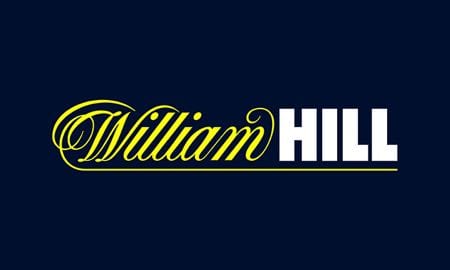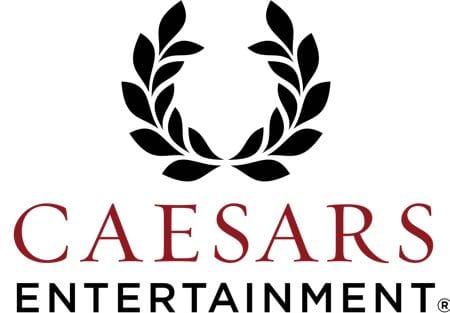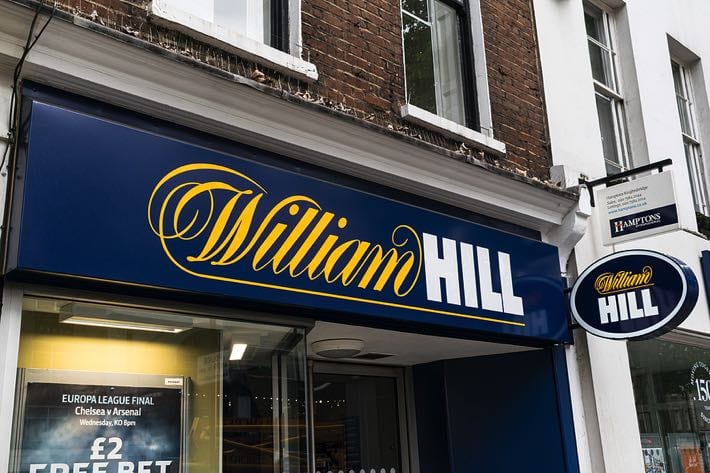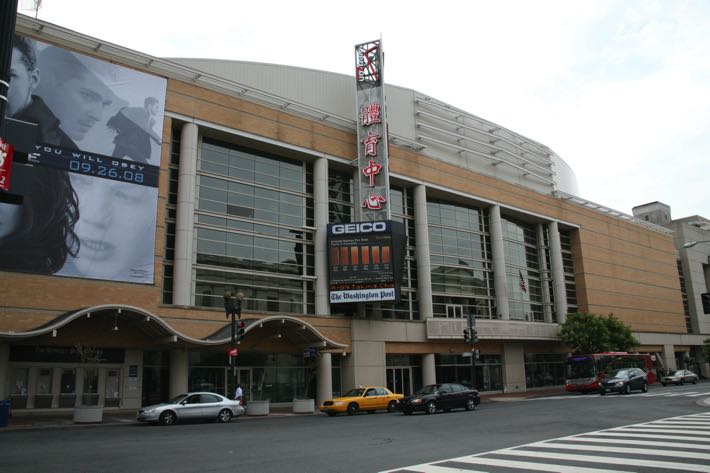 William Hill is considered to be one of the ‘classic’ British bookmakers, having been founded by William Hill in 1934 as an on-course bookie. At the time, gambling was illegal in Britain and even when betting shops on the high streets were legalised the William Hill brand refused to open a store. Indeed, the high street version of the betting shop didn’t come into existence in 1964, at which point it would have been folly to refuse to open shops on the street.
William Hill is considered to be one of the ‘classic’ British bookmakers, having been founded by William Hill in 1934 as an on-course bookie. At the time, gambling was illegal in Britain and even when betting shops on the high streets were legalised the William Hill brand refused to open a store. Indeed, the high street version of the betting shop didn’t come into existence in 1964, at which point it would have been folly to refuse to open shops on the street.
In late 2020, it emerged that Caesars Entertainment, the company behind Caesars Palace in Las Vegas, was planning to purchase the US-based assets of William Hill and almost certainly sell off the non-US assets of the company. The news led to question marks about the future of the bookmaker, with many wondering whether it would still be in existence in the not-too-distant future. We’ll explore that idea further here.
The Purchase of William Hill
 The first place to start is with the planned purchase of William Hill. At the end of September 2020, the news began to emerge that Caesars Entertainment, the US casino operator, had agreed a £2.9 billion move to takeover the British bookmaker. The deal was based on an offer of £2.72 per share of William Hill, which was a premier of a quarter when the share price was compared to what it was before Caesars’ interest had made it to the press.
The first place to start is with the planned purchase of William Hill. At the end of September 2020, the news began to emerge that Caesars Entertainment, the US casino operator, had agreed a £2.9 billion move to takeover the British bookmaker. The deal was based on an offer of £2.72 per share of William Hill, which was a premier of a quarter when the share price was compared to what it was before Caesars’ interest had made it to the press.
The deal was then recommended unanimously by the company’s directors to their shareholders, with the latter needing to agree by a ratio of 75% or more. Caesars Entertainment, which owns a number of casinos in the United Kingdom, was hoping that the purchase of William Hill would give them a foothold in the emerging sports betting market in the United States of America. Caesars’ share price moved from a low of $6 to a high of $54 as a result.
Whilst the move to buy the US-based part of the business makes sense in the wake of the Supreme Court’s decision to overturn a federal ban on sports betting in 2018, Caesars have already made clear that they do not want to keep hold of William Hill’s UK and European branches. They were struggling even before the global health crisis of 2020, not least of all because of a need for regulation to be used to control problem gambling.
The Separation of the UK Operation

Apollo Global Management was one of the companies that initially planned to rival Caesars Entertainment for William Hill, only for the Caesars Palace owners to make an offer that blew them out of the water. It emerged in the weeks after that that Apollo plans to buy the European subsidiaries of the British company instead. It will certainly make little difference to Caesars Entertainment to sell it, given their own merger with Eldorado Resorts earlier in 2020.
That move made the company the largest casino and hospitality business in North America, with a reluctance to have the European side of William Hill become part of the new look company. It’s not just Apollo Global Management that is interested in the European side of William Hill. If a bookmaking company is selling assets then you can bet that Fred Done won’t be fair away, always keen as he is to improve Betfred’s standing.
There is plenty of sense behind Done’s interest, given his 6% stake in William Hill should net him around £170 million from the Caesars Entertainment takeover. 888 Holdings also reported that they were keeping an eye on the situation when they released their interim financial report. They would be keen to buy Mr Green, the Scandinavian country owned by William Hill, should it become available as part of a Caesars fire sale.
What It All Means for the William Hill Brand
With various betting giants circling around the Caesars Entertainment deal for William Hill like vultures, the obvious question to ask is what it all means for the future of the brand. Whilst the likes of Coral and Ladbrokes are much older than William Hill in reality, the Hill brand is one that is both well-known and trusted in the UK market. It’s therefore understandable that there are fears that it might well disappear if it’s ripped to shreds.
The reality is that William Hill has endured through far more turbulent times than these. Indeed, the William Hill brand has changed hands numerous times, being bought by Sears Holdings in 1971 before being sold to Grand Metropolitan in 1988. They sold it on to Brent Walker within a year, keeping hold of it until they themselves collapsed with debts of £1.3 billion in 1997. At that point the company was bought by Japanese investment bank Nomura.
The adventures of William Hill’s ownership didn’t end there. Nomura offloaded it to Cinven and CVC Capital Partners, two private equity firms. It floated on the London Stock Exchange in 2002 and William Hill soon bought Sunderland and Newcastle Greyhound Stadiums. In the years that followed, there was a wealth of movement for the company, thanks in no small part to the company being relegated from the FTSE 100 Index in December of 2005.
All of that is suggestive of a company that knows how to withstand the turmoil of takeovers. Whilst the past has seen William Hill improve its operations and the future will almost certainly mean a splitting up of them, it’s still noteworthy that it has survived countless different parent companies over the years. Not only has it survived but it has actually grown over the same period, especially in the United States of America.
Turmoil Is a Part of William Hill’s Past
 Another reason why many will be confident of William Hill’s ability to not only survive the takeover but even thrive because of it comes in the form of the company’s constant state of turmoil. When the company’s then Chief Executive, David Harding, decided to sell £5.2 million worth of shares in 2004, it led to a decline in William Hill’s stock that saw £75 million drop of the company’s value, for example. He’d only done it to fund his divorce.
Another reason why many will be confident of William Hill’s ability to not only survive the takeover but even thrive because of it comes in the form of the company’s constant state of turmoil. When the company’s then Chief Executive, David Harding, decided to sell £5.2 million worth of shares in 2004, it led to a decline in William Hill’s stock that saw £75 million drop of the company’s value, for example. He’d only done it to fund his divorce.
The company’s drop out of the FTSE 100 Index came after the Office of Fair Trading ruled that William Hill would have to sell seventy-eight of the six hundred and twenty-four stores bought from Stanley Leisure in 2005. That led to fears that Hill had overpaid for the shops, which, combined with problems around the company’s website, led to many believing that William Hill was struggling to find its place in the online market.
Having partnered with Orbis, the company that would go on to become OpenBet, in November 2008, William Hill also began working with Playtech to fix its online operation. This required a payment of £144.5 million to Teddy Sagi, the founder of Playtech. The deal with Playtech saw William Hill scrap their previous in-house effort at a website, which cost them £26 million. Again, the turmoil over the years has actually left the company well-placed to cope with what’s to come.
The William Hill Name Will Probably Live On

The key part of William Hill’s success and the reason why Caesars Entertainment were willing to pay so much for the company lies in its position in the American marketplace. The company bought three small betting operators in Nevada in 2012. At the time, the state was the only one that would offer a full-service sportsbook, largely because the Professional and Amateur Sports Protection Act stopped states from offering such services.
That Act was struck down as part of a Supreme Court ruling, meaning that individual states would be allowed to decide if they would offer sports betting or not. William Hill was suddenly well-placed to take advantage of the newly emerging market, quickly establishing itself as one of the biggest operators in the country. When the Capitol One Arena opened in Washington DC in August 2020, William Hill became the operator with a presence in the building.
That was the first time that any full-service betting operation had opened in a venue housing a professional sports team, showing the power of the William Hill name. Even back in 2012, when the company bought Lucky’s, Leroy’s and Club Cal Neva in Nevada, they rebranded as William Hill locations rather than kept their own names. Similarly, Sportingbet, Centrebet and Tom Waterhouse re-branded as William Hill in Australia in 2015, having been bought in 2013.
What all of that shows is that the William Hill name has plenty of clout around the world. Whilst Caesars Entertainment has a solid reputation of its own, it would be madness to immediately rebrand all William Hill premises across America as soon as the deal to take over the British bookmaker has gone through. It’s more likely that Caesars will look to assimilate William Hill over a longer period of time.
As for the European and British operations, it’s again unlikely that Apollo Global Management will be all that interested in wiping out William Hill’s name; if they do indeed win the bid to buy the European and British arm of the company. Instead, William Hill US and William Hill everywhere else will almost certainly exist as two different and distinct companies. The William Hill name is too well-known to completely disappear from sight.